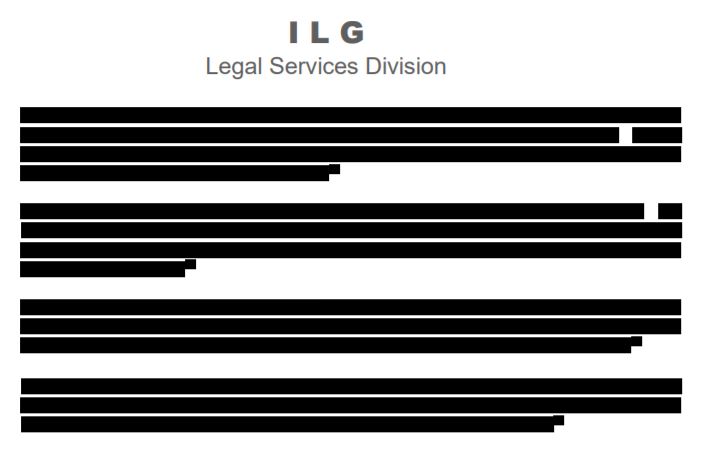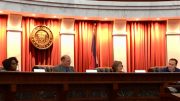By Jeffrey A. Roberts
CFOIC Executive Director
Redacted portions of an investigator’s report on sexual misconduct allegations against Denver school board member Tay Anderson cannot be publicly disclosed because of a specific exemption in the Colorado Open Records Act, a judge has ruled.
The order issued Monday by Denver District Court Judge J. Eric Elliff cites language in CORA that requires the withholding of “any records of sexual harassment complaints and investigations, whether or not such records are maintained as part of a personnel file.”

“The Court recognizes that due to Mr. Anderson’s position as an elected official, and particularly as one in the context of school administration, the contents of this report are of the utmost concern to the public,” Elliff wrote, adding that the public also has an interest “in assessing the efficacy and fairness of such investigations.”
But while the 96-page Investigations Law Group (ILG) report fits CORA’s definition of a “public record,” it also fits CORA’s exception for records of sexual harassment complaints and investigations, the judge determined.
The ILG report, issued in September, found that that the most serious allegations against Anderson could not be substantiated, but Anderson’s fellow school board members censured him for flirting with students on social media and making social media posts that could be perceived as intimidating witnesses in the investigation. (Anderson has since been chosen to serve as the board’s vice president.)
Denver Public Schools in October asked Elliff to determine whether it could release multiple blacked out paragraphs to The Denver North Star and The Denver Post, applying a seldom-used provision in CORA that lets records custodians seek a judicial clarification if they cannot, in good faith, figure out whether the disclosure of certain records is prohibited.
The Post and The North Star were named in the DPS lawsuit because they made CORA requests for the unredacted version of the report.
Elliff noted in his ruling “there is little in the way of case law” interpreting the way CORA handles records of sexual harassment and complaints. He wrote that Colorado’s specific statutory exemption for such records “is somewhat unusual, and other states resolve the question of whether such public records should be made public by balancing the privacy interest of those involved with the public’s interest in the content of the documents.”
“But CORA, unlike the open records acts in the states mentioned above, contains a clear exemption to disclosure for ‘any record’ of sexual harassment complaints and investigations.”
The newspapers argued that the exemption didn’t apply because the ILG report is a “summary of findings” and most of the report had been released to the public.
Asked about the ruling, North Star Editor David Sabados told the Colorado Freedom of Information Coalition he is reviewing the newspaper’s options with attorney Rachael Johnson of the Reporters Committee for Freedom of the Press.
Follow the Colorado Freedom of Information Coalition on Twitter @CoFOIC. Like CFOIC’s Facebook page. Do you appreciate the information and resources provided by CFOIC? Please consider making a tax-deductible donation.




